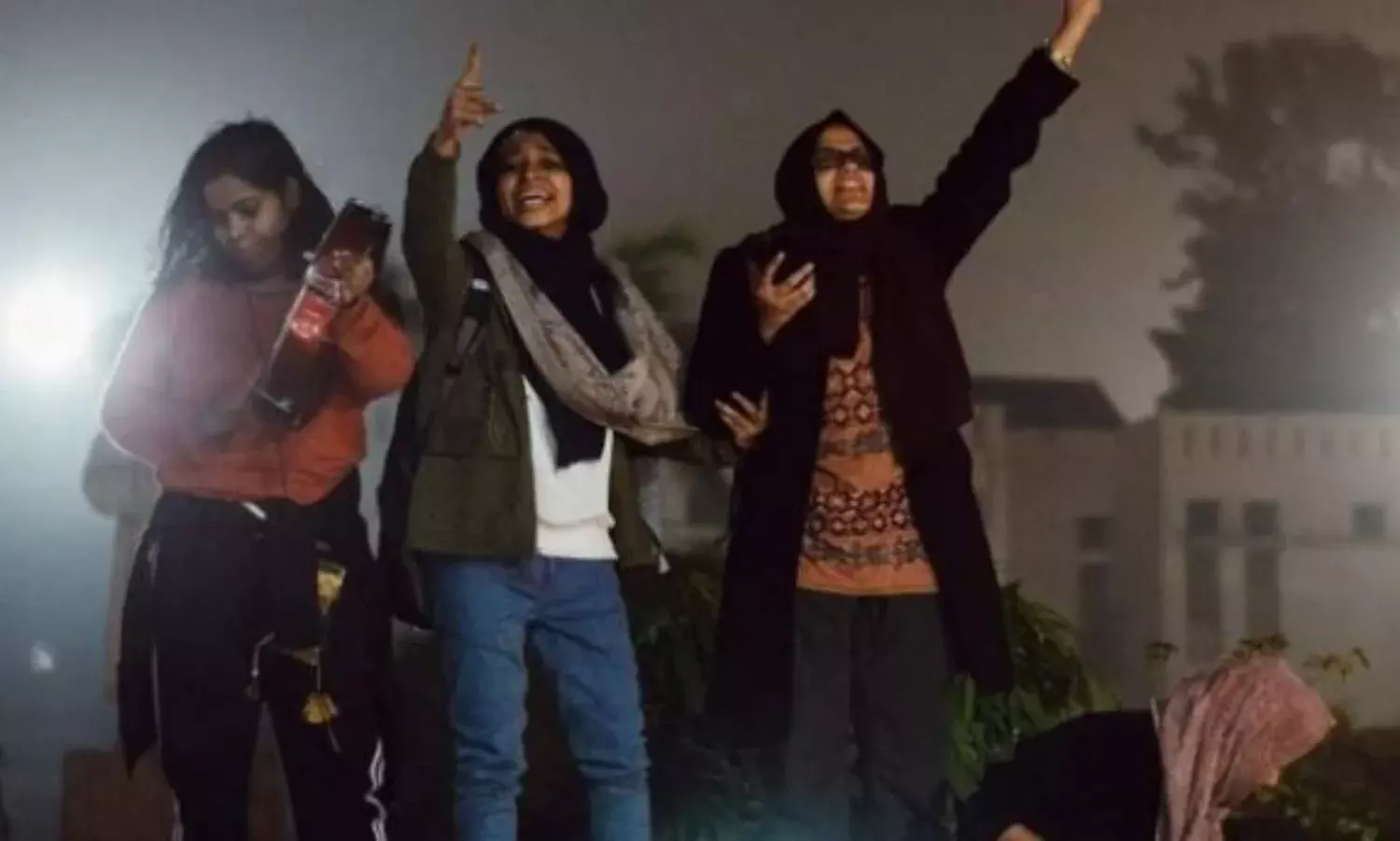The Misuse of Power
Arrests of youth activists

The Crime Branch of the Delhi Police has fabricated a conspiracy theory which seeks to link anti-CAA protesters with the communal violence which took place in north-east Delhi in end February. The pattern of arrests, the cases and charge-sheets filed,reveal the real conspiracy which has been hatched under the aegis of Amit Shah’s Home Ministry.
A number of arrests were made of students and alumni of Jamia Milia Islamia University on charges of incitement and planning of communal riots. Out of these, some of them have been charged under the Unlawful Activities Prevention Act (UAPA), a draconian law of preventive detention which denies bail to those accused.
The chronology set out in the nine charge-sheets that have been filed so far goes as follows: the anti-CAA protests outside Jamia University turned violent, this was followed by protests being organised in different parts of the city like Shaheen Bagh, which led to blockade of roads; the sit-in organised in Jaffarabad by blocking the highway was meant to provoke the communal riot. It is by such a narration that some of the members of the Jamia Coordination Committee have been arrested as also anti-CAA activists from JNU and other places.
Four of the charge-sheets filed by the Crime Branch on June 8 allege that the accused “conspired with the intent to create communal strife to malign the image of the country under the garb of democratically opposing the Citizenship Amendment Act (CAA)”.
In the charge-sheet on the killing of Head Constable Rattan Lal it is stated that those accused belong to a “web of conspirators” who spread misinformation about the CAA.
The intent of the prosecution is clear – that the opposition to the CAA was the garb under which the communal violence was incited and planned. The charge sheet on the killing of Intelligence Bureau staffer, Ankit Sharma, mentions under the chronology of events a “hate speech” delivered by Harsh Mander, the noted civil rights activist at the gathering outside Jamia on the pretext of a speech for “peace”.
As far as hate speeches are concerned, the Delhi Police have steadfastly refused to even file a FIR against Kapil Mishra, the BJP leader, whose speech on February 23 threatens to use force to evict the Jaffarabad protesters, the moment President Trump leaves the city. This speech was delivered in the presence of the DCP of the area.
In two charge-sheets filed in murder cases, where the accused are Hindus, it is stated that the Muslims had indulged in large scale killings and destruction of property on February 24 and in reaction to that the accused had retaliated.
The one-sidedness of the cases filed and the arguments made led a lower court judge hearing the case of a Jamia student being sent to judicial custody to state that “Perusal of the case diary reveals a disturbing fact. The investigation seems to be targeted only towards one end”.
In some of the cases filed against the anti-CAA protesters, when the matter came up for bail, some of the judges in the lower courts remarked that no material has been presented to show any serious offence has been committed. This was true in the case of two JNU research scholars, Natasha Narwal and Devangana Kalita. As soon as bail was granted, the Crime Branch came up with fresh charges and later booked them under the UAPA.
The UAPA has been applied in the case of Sharjeel Islam (JNU student), Umer Khalid (former JNU student), Safoora Zargar, Meeran Haider, Shifa-ur-Rehman (all members of the Jamia Coordination Committee), Natasha Narwal (JNU), Ishrat Jehan and others. None of them had any role in the communal violence.
By the definition of the Home Ministry, opposition to the CAA/NRC is an unlawful activity. The UAPA is applied to associations and organisations who are declared unlawful; It is meant to counter terrorism and secessionist activities which affect the sovereignty and integrity of India. It seems organizing protests against the CAA is a subversive and terrorist offense.
The use of UAPA in this matter is a gross misuse of power and a total violation of the rights of citizens. The detention of Safoora Zargar, on charges under the UAPA, is particularly reprehensible. She is pregnant and is in jail at a time when the Covid pandemic is spreading. Unfortunately this brazen misuse of the UAPA is not being questioned by the judiciary.
Detention under UAPA for opposition to CAA-NRC makes all of them political prisoners. This was the same tactic adopted in the Bhima Koregaon case where Sudha Bharadwaj, Anand Teltumbde, Gautam Navlakha and others have been imprisoned under the UAPA based on fabricated evidence or no evidence whatsoever except their record of radical opposition to the powers that be.
The detention of political activists in Delhi has come after the Delhi assembly elections in which the BJP was routed. The BJP leaders had indulged in the vilest anti-Muslim rhetoric during the campaign. The BJP rulers at the Centre are using the police investigations as a political weapon against the minorities and those who oppose their communal gameplan. The Covid pandemic and the lockdown has been exploited for this purpose.
The misdeeds of the Delhi Police and the use of the UAPA against anti-CAA activists cannot be seen as an aberration. It is a serious assault on the democratic rights of citizens and is a display of virulent authoritarianism. It has happened in India’s capital city directed by someone no less than the Home Minister of India.
All democratic forces can ignore this development only at their peril. The Modi government should know that the fight against unjust laws and the defence of fundamental rights given under the Constitution will in no way be relaxed in the coming days.
Prakash Karat is a member of the CPI(M) Politburo



